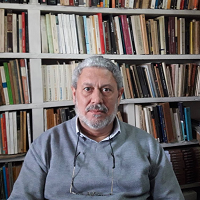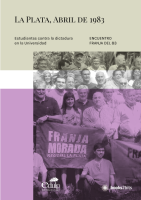Books2bits reading formats:
Free and open reading: links on the page of each book
PDFs direct sales (directs to a Google form)
E-books on Amazon
Printed at Servicop and bookstores distributor Bibliomanager
This is a collection that proposes an approach to the individual experience that allows to open a crack through which to observe the collective. It is made up of stories and testimonies from all periods because the themes it deals with belong both to recent history and to that of a deeper past. Indeed, the collection is strongly linked to history, but it is approached without the urgency or the methods and corsets of institutes, scientific journals, and university editions. However, its good workmanship shows all the professionalism learned in academic environments.
It is oriented to dissemination through stories that recover individual experiences not told in history books and the testimonies offered by those who have carried out a relevant task in the field of their development or interest.
In order for the individual experience of those who have died to be known, it is necessary for someone to tell a story about it. This is what justifies the term in the collection. Stories refers to the possibility of telling in a simple way facts from the lives of historically situated individuals. According to the approaches adopted, it is usual to know, through historical research, the great facts that, interwound, explain the processes, the becoming or the ups and downs of history. On the other hand, the aim here is to express, to a large extent, what happened to Fabrizio del Dongo - the main character in Stendhal's remarkable novel, The Charterhouse of Parma - who, in the midst of the battle of Waterloo, wondered where the battle he himself was part of was taking place. In other words: the battle is known, but the soldier's experience during the battle is much less known.
Testimonies is linked more to the idea of the person telling orally or in writing about their own experience. Who can tell it? All those who wish to do so, and have a social, cultural, political, etc., experience of importance to share and understand a little more the reasons why these or those events take place, how they work so that things have a result, the unforeseen situations that twist the security of a life that was thought to be under control. We will be able to find testimonies of specialists in some professional field, of politicians and supporters of political groups and parties, of those who take care of handwork that "nobody" does but that are fundamental, among others. We look forward to your proposals.
Director: Guillermo O. Quinteros

I was born in a city called 9 de Julio, in the province of Buenos Aires, Argentina. My early childhood was spent in Quiroga, a very small town near the above-mentioned city. My family moved to Mercedes, another Buenos Aires city located 200 kilometers from La Plata, capital of the province of Buenos Aires, where I finally settled.
I studied at the National University of La Plata, from which I graduated as a Professor, Bachelor and Doctor in History. I have been teaching there for more than 30 years, in the School of Humanities and Education Sciences and also in the School of Journalism and Social Communication. I have taught in several cities of the country and in different university environments. I am editor of two academic history journals.
I have spent the same amount of time as a researcher. I have studied and written articles and books on topics of my interest: the occupation of the Buenos Aires territory in the late eighteenth and early nineteenth centuries; the history of women during the nineteenth century; domestic violence; marriages, courtships and sexuality; politics and intellectuals of the nineteenth and twentieth centuries. I am also devoted to the study of many issues related to the press and newspapers of the same centuries.
For several years I led a university extension team, to implement actions in various regions of Argentina. The last activities were developed together with the communities of the so called “Triple Frontera “composed by the cities of Bella Unión (Uruguay), Barra do Quaraí (Brazil) and Monte Caseros (Argentina).
From now on I add to my activities this task, which I hope will be fruitful.

Books2bits reading formats:
Free and open reading: links on the page of each book
PDFs direct sales (directs to a Google form)
E-books on Amazon
Printed at Servicop and bookstores distributor Bibliomanager
 Licencia Creative Commons Atribución – No Comercial – Sin Obra Derivada 4.0 Internacional
Licencia Creative Commons Atribución – No Comercial – Sin Obra Derivada 4.0 Internacional
Argentina: Calle 69 n 1083 e/ 16 y 17 | (1900) La Plata | Province of Buenos Aires
Mare de Deu de Lorda, 45, Primero | (08033) Barcelona | España
Email: editorialbooks2b@gmail.com
Phone: +34 671 47 35 71
Made with OMP Open Monograph Press
Owner: Hermes Data S. A. de C. V.
Intellectual Property Registration pending
